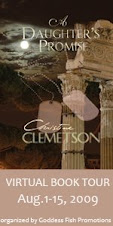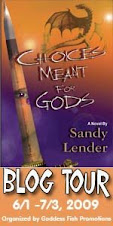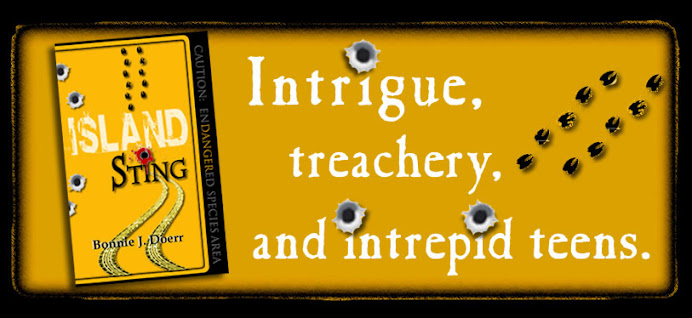
 Today C.L. Talmadge, author of the Green Stone of Healing® series, is joining us today to share about how she does world-building. For anyone who wants to create a fantasy or sci-fi, these techniques are powerf
Today C.L. Talmadge, author of the Green Stone of Healing® series, is joining us today to share about how she does world-building. For anyone who wants to create a fantasy or sci-fi, these techniques are powerf ul, but even those who are writing contemporary or historical can pick up some tips.
ul, but even those who are writing contemporary or historical can pick up some tips.
Let's welcome C.L. and find out her insider secrets:
Creating Different Worlds
By C.L. Talmadge
Creating a different world, whether for fantasy, sci-fi, paranormal romance, or any other speculative fiction, is not all that different from creating a contemporary setting for a novel of the here and now.
This “other” world cannot be so different or unusual that readers do not relate to or understand it. In fact, most of the elements of this different world will be very similar if not the same as elements of the world we know.
It’s the exceptions that mark a world out as alternative, or speculative.
One such exception might be the world’s technology. Yet-to-be seen gadgetry is usually the star of hardcore sci-fi, but not always. The Dune series, for example, boasts scads of way-out technology, but it always takes a back seat to the story and the characters. Maybe that’s why it has been such an enduring bestseller. Few readers are satisfied with nothing but pages filled with dissertations on future technology.
In my speculative epic, the Green Stone of Healing® series, much of the technology is similar to what we know now. There are cell phones (links), the Internet (the Grid), mobile computers called Gridbooks, and mechanized transportation (helicopters are called rotors).
In the past, this spiritual technology was the basis of the power of the dominant people in my series, the Toltecs.
Another way to establish a speculative world is through its economy. What do people do for a living? How is their profit-making organized? This, of course, is closely related to politics. So, think about how this speculative society is organized. Is it tribal and rural? Urban and nation-state? Some blend of the two or something else altogether? Keep in mind our world today displays a wide range of ways to organize people, even if we divide politically into countries. Some nations are more coherent and homogenous than others.
In my series, the predominant setting is an island-nation called Azgard. It is a monarchy but there is a legislative body that the ruler, called the Exalted Lord, must consult. Much conflict and thus plot arises out of the power struggle between the king and this group, known as the Kinshazen.
This legislative body, however, does not represent all the people of Azgard. It consists only of the heads of the families that comprise the oligarchy that controls the nation’s wealth. Poor Toltecs and the Turanians, the conquered and dispossessed people of Azgard, have no political power and no representation. They fare little better than serfs. Later in the series a lot of action and conflict will arise out of this situation as future heroines seek to right this inequity.
Language is still another way to establish otherworldliness. The first-generation protagonist of my series, Helen Andros, is fluent in three languages. They are Atalan, the language of her mother’s people, the Turanians; Terzil, the language of the Toltecs, her father’s people, and Kydosh, the language of a vassal state far to the East of Azgard. Even the simple acts of naming a different language and providing a few words in that strange tongue helps imbue your setting with an otherworldly aura.
Last but not least, the characters help set the stage for a different world. Sometimes they are simply not human beings, like the mystical, alien mist-Weavers in my series. Aliens, elves, dwarves, werewolves, vampires are one dramatic way to establish a speculative world. But then, some of these nonhumans pop up in thoroughly contemporary settings, too.
Even the human characters, however, can contribute to the fantasy atmosphere by their beliefs and expectations about life and their world. They do not necessarily have an old-fashioned sensibility, but they are not totally modern or post-modern, either. In my series, for example, forget about women’s rights. Females are treated like chattel in Azgard, and my strong-willed first-generation heroine pretty much accepts her lot, even if she does not like it. Her warrior daughter, however, will raise an ungodly stink about it. Since my series is set in a theocracy, my characters’ religious beliefs and their national origin mythology are critical and very much interrelated.
Numerous ways exist to set a world apart and imbue it with a sense of otherness. Just don’t go so far afield that an audience cannot find some way to connect the characters and events they read about to their own lives.
C.L. Talmadge is the author of the Green Stone of Healing® speculative epic. The fourth in the series, Outcast, will be published Oct. 1. Vote for the first book, The Vision, through Sept. 25 and get a free e-book on healing, love, and spirituality. Details at her blog: www.healingstonebooks.com/stonescribe
Thanks so much for joining us C.L. You've given us a lot to think about. Readers who comment on the blog tour also have an opportunity to win the series of books. So leave a comment for C.L. or share your own techniques for world-building. If you're a reader rather than a writer, what's your favorite world and why?







.jpg)
1 comment:
A very belated thanks to Lily for being a part of my tour!
Post a Comment